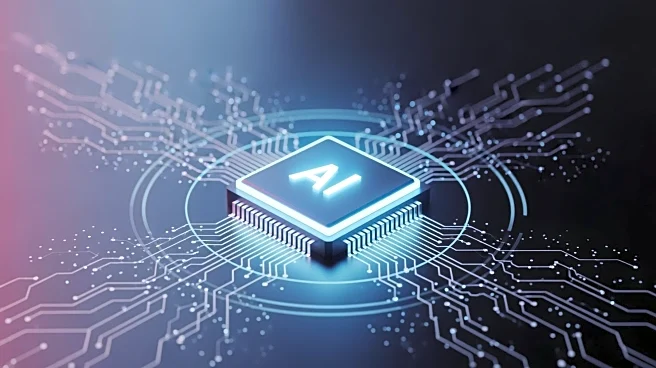What's Happening?
On October 30, 2023, the G7 leaders announced the adoption of International Guiding Principles on Artificial Intelligence (AI) and a voluntary Code of Conduct for AI developers, as part of the Hiroshima
AI Process. This initiative, launched at the G7 Summit in May 2023, aims to establish global guardrails for advanced AI systems. The Guiding Principles are designed to help organizations develop, deploy, and use AI systems safely and transparently. They include measures to identify and mitigate risks throughout the AI lifecycle, ensure transparency, and promote responsible information sharing. The Code of Conduct builds on these principles, offering detailed guidance for AI developers. The European Commission has stated that these documents will be reviewed and updated as necessary to remain relevant and effective.
Why It's Important?
The establishment of these principles and the Code of Conduct is significant as it represents a coordinated international effort to manage the rapid development of AI technologies. By setting these guidelines, the G7 aims to ensure that AI systems are developed responsibly, with a focus on safety, transparency, and accountability. This move could influence global AI policy, encouraging other nations and organizations to adopt similar standards. The initiative also highlights the importance of international cooperation in addressing the challenges posed by AI, such as ethical concerns, security risks, and the potential for misuse. Organizations that align with these principles may gain a competitive advantage by demonstrating their commitment to responsible AI development.
What's Next?
The G7 leaders have called on organizations developing advanced AI systems to commit to the International Code of Conduct, with the first signatories expected to be announced soon. This commitment could lead to widespread adoption of the principles, setting a benchmark for AI development globally. The ongoing review and update of the documents will ensure they remain effective in addressing emerging AI challenges. Additionally, the G7's focus on AI governance may prompt further discussions and collaborations among international stakeholders, potentially leading to the development of more comprehensive global AI regulations.










